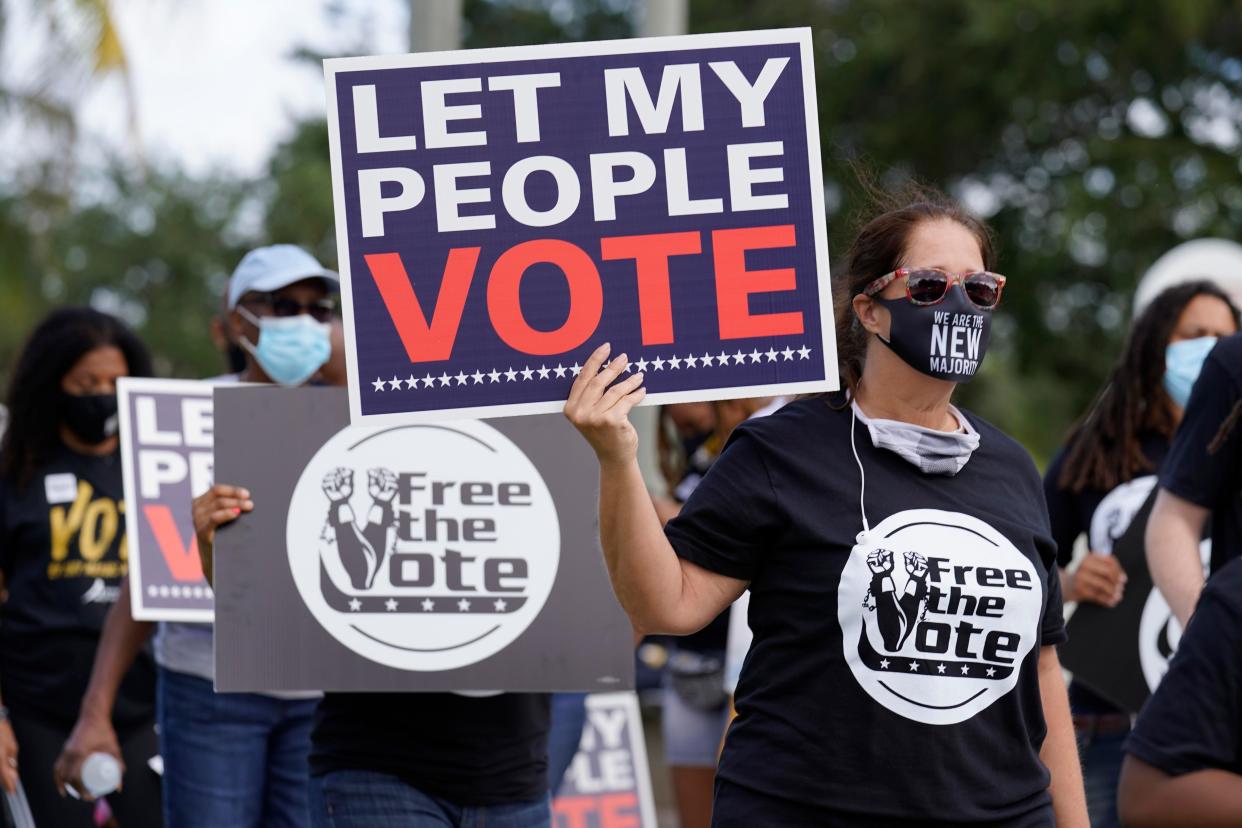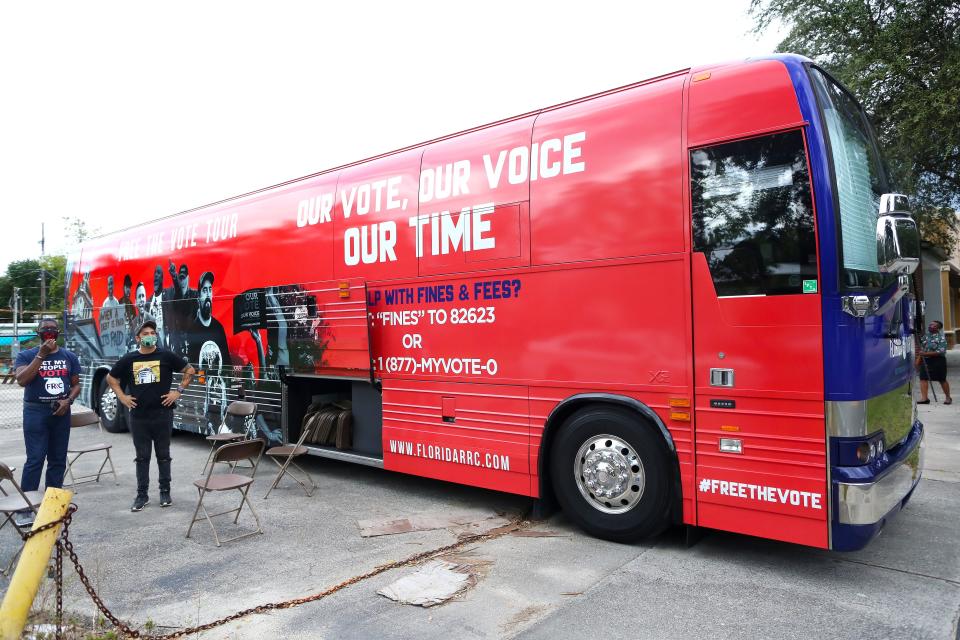Voting charges against Alachua County inmates show system designed to fail

When nearly 65% of Florida voters approved Amendment 4 in 2018, most believed they would be automatically restoring the voting rights of former felons who completed their sentences, except those convicted of murder or a felony sexual offense. That is, after all, what the measure says in plain language.
But the Republican-controlled Florida Legislature created a modern-day poll tax for these voters, passing a law requiring them to pay all fines and fees related to their sentences before their voting rights are restored. Yet, lawmakers didn’t create a system to let former felons check whether have any unpaid fines and fees remaining, putting them in legal jeopardy if they vote without paying off these costs.
"This is a system designed to fail in which individuals may be making an honest mistake and are now facing felony charges," University of Florida political science professor Dan Smith told The Sun.
Smith was referring to an ongoing case in which at least 10 people have been charged with election-related crimes in Alachua County, including providing false voter registration information and illegal voting. They were among inmates being held at county jail in 2020 when an Alachua County Supervisor of Elections’ Office staff member visited to help them register to vote.
More Sun editorials:
GINI recommendations would make Gainesville more inclusive to immigrants
County should seek new ways to stop underage sales of tobacco, nicotine products
State lawmakers doubling down on political interference at UF, other state schools
The cases show the problems caused by the absence of a statewide system allowing former felons, as well as elections supervisors and voter-registration groups, to fully determine voting eligibility. Smith worked with the American Civil Liberties Union to create such a system, but the effort hit roadblocks due to some county clerks' offices lacking documentation on fines owed and collection agencies holding some of the debt.
Thankfully, Eighth Circuit State Attorney Brian Kramer said he’s working on a way to help local residents determine their eligibility to vote. In the coming weeks, Kramer said, his office will start taking applications from residents who want to check whether they have unpaid fines blocking them from voting.
His office will determine whether they are eligible to vote, or let them know if it lacks the information needed to decide. Kramer said he’s unaware of other state attorneys in Florida performing such a service, but believes it falls under his purview.
“This is what we should be doing,” he said.

Unfortunately, the service comes too late for the 10 individuals facing felony charges for election-related crimes. While responsibility ultimately falls on them, they were put in a difficult position due to voter-registration efforts at the jail.
The Florida Department of Law Enforcement found that the Alachua County Supervisor of Elections’ Office conducted “a haphazard registration of inmates and could compromise the integrity of the Florida Voter Registration System.” But its investigation also found that the office’s former outreach director, TJ Pyche, told inmates about the law's requirements and had no additional duty to investigate their backgrounds.
Supervisor of Elections Kim Barton should have done a better job guiding those efforts, especially since she worked as outreach director for about 10 years before being elected supervisor in 2017. She acknowledged confusion among former felons about Amendment 4 and the additional requirements put in place since it passed, but told The Sun that she plans to continue outreach efforts at the jail while adjusting the process.
"I don't segment a particular group and treat them differently than anyone else," Barton said. “It is our mission and our mandate to educate, first and foremost, potential eligible citizens to vote."
Former felons should be treated like any other Florida voters, but that isn’t the political reality in our state. Republican state officials want to make it difficult for these voters to exercise their rights, while using the cases of those who might have unknowingly violated the law to further limit voting rights. Sadly, these Alachua County cases will likely help state officials advance such efforts instead of leading them to improve the system.
— The Gainesville Sun Editorial Board
Join the conversation
Send a letter to the editor (up to 200 words) to letters@gainesville.com. Letters must include the writer's full name and city of residence. Additional guidelines for submitting letters and longer guest columns can be found at bit.ly/sunopinionguidelines.
Journalism matters. Your support matters.
Get a digital subscription to the Gainesville Sun. Includes must-see content on Gainesville.com and Gatorsports.com, breaking news and updates on all your devices, and access to the eEdition. Visit www.gainesville.com/subscribenow to sign up.
This article originally appeared on The Gainesville Sun: Editorial: Alachua County voting charges show system designed to fail

